LIXIL makes pioneering water and housing products that solve everyday, real-life challenges, making better homes a reality for everyone, everywhere.
- Global Site
-
- English
- Japanese
- Brand Sites
Global
- Global Site
-
- English
- Japanese
- Brand Sites
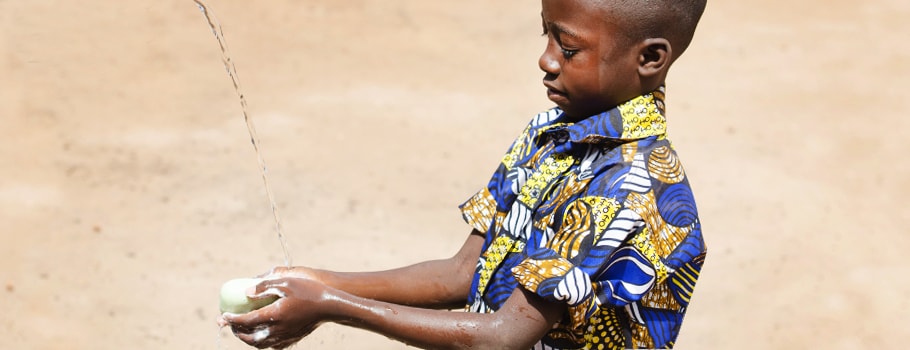
Updated:June 22, 2020
Learn more about the product here: www.sato.lixil.com/satotap
Like many of the best ideas, Daigo Ishiyama‘s came to him out of the blue. His six-year-old son was playing in the bath, letting water dribble from one plastic toy to another, when inspiration struck.
Within a matter of weeks, SATO’s Chief Engineer and Marketing Officer had devised the SATO Tap, which is simple and inexpensive to make, and will enable millions of people in lower-income parts of the world to wash their hands regularly - a critical first line of defense against the global coronavirus pandemic.
The process was not always straightforward, Ishiyama admits. He had to undergo five major design iterations of the device, fabricating prototypes and doing tests from his garage and basement in his New Jersey home. But the need to devise a solution had become very personal.
Daigo talks about SATO Tap: a handwashing solution for households without running water (Video)
Handwashing Out of Reach for Billions
Ishiyama contracted the novel coronavirus in March, going through the physical and mental stress of dealing with the virus. As he self-isolated himself in a room, he studied the news of the virus wreaking havoc on the communities where SATO operates, exposing the inequity of access to handwashing. He knew he was one of the relatively fortunate ones, though; as of early June, nearly 6.7 million people around the world had been diagnosed with the virus and there had been close to 400,000 fatalities.
Ishiyama immediately started researching existing hand washing solutions online, and learned of the latest developments in Asia and Africa through his SATO colleagues. He was determined to come up with a solution to help those in need.
“In the developed world, we tend to take access to water, sanitation, and hygiene for granted,” said Ishiyama, who is behind some of the most innovative toilet systems created by SATO, a social business operating under LIXIL’s portfolio of global water technology brands.
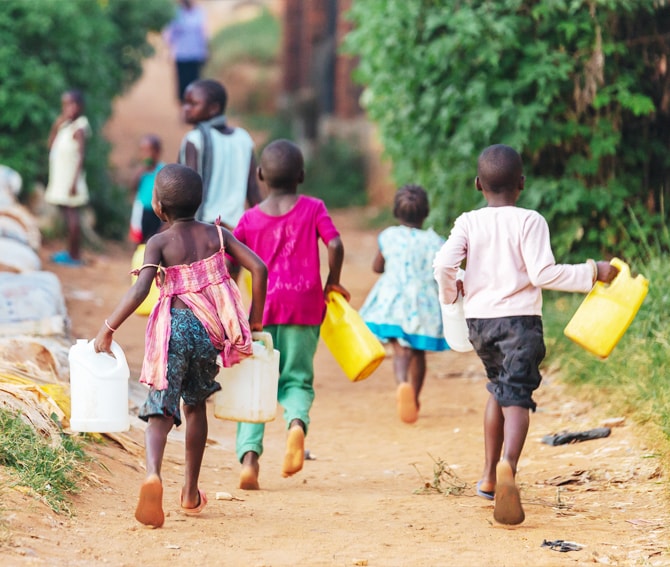
“These are basic human necessities, and that is equally true in developing parts of the world,” he said.
“With the coronavirus rampaging around the world, the need for people to wash their hands despite a steep inequality in access to water, soap and effective hand-washing practices was painfully highlighted,” said Ishiyama.
According to UNICEF, 40% of the world’s population does not have access to basic handwashing facilities at home. In the world’s least developed countries, it is as high as 75% of the population.
Innovating Under Lockdown
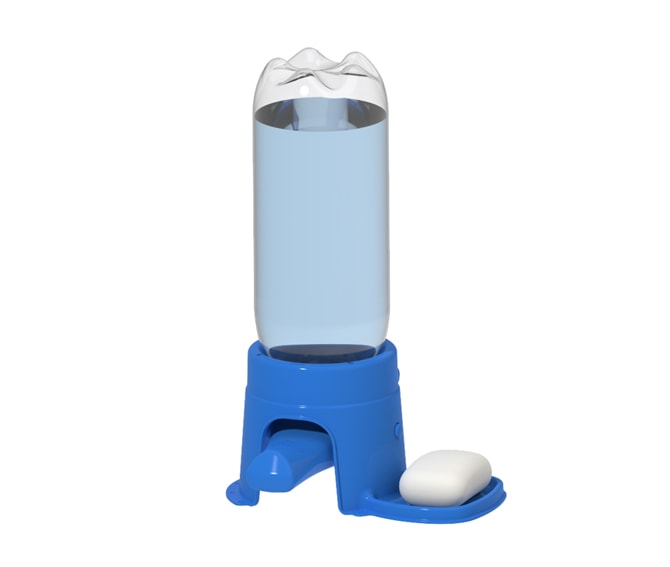
The SATO Tap is designed to release a steady but limited flow of water to ensure none is wasted, is gravity fed from a plastic bottle - with the connector designed to accept a variety of bottle shapes and sizes - while featuring an integral soap holder.
“The final product consists of two plastic parts, one injection molded and the other blow molded. Both are very common manufacturing methods for mass production in developing countries,” said Ishiyama.
There were other considerations to bear in mind beyond the design. The solution had to be within the users’ means.
“Offering products at a price point users can afford is paramount in all that SATO does. The simple design helps keep the cost of molds and parts low, which factors into the affordability of the product, one of the critical drivers of sustained behavioral change,” he said.
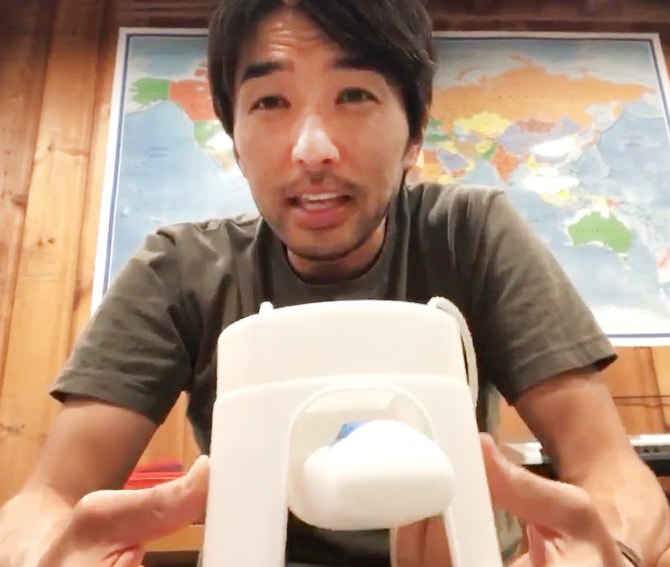
Ishiyama explaining how SATO Tap works on a video call
Most important, he added, was to approach the problem from the end user’s perspective, working backwards to create the most appropriate and effective solution.
“The whole SATO team stepped up and shared information that helped identify local needs and shape the direction and development of the product,” he said.
Under strict lockdown, Ishiyama’s wife and son served as primary testers during the development process. He worked with a local prototyping company that offered 3D printing support, but made sure to remain patient, ensuring they could continue to meet the critical demand for personal protective equipment for medical workers.
Reaching homes in need
Even before the pandemic, LIXIL’s SATO has been providing sustainable, affordable and safe sanitation for rural and peri-urban communities that are beyond the range of existing sewage systems. To date, the SATO business has shipped 3.8 million toilet units, improving the sanitation of 18.6 million people in over 38 countries around the world.
These efforts dovetail with the United Nations Sustainable Development Goals, and LIXIL works closely with NGOs and like-minded companies and organizations such as the United Nations Children’s Fund (UNICEF) and WaterAid to reach the most disadvantaged. LIXIL is committed to reaching the ambitious goal of improving sanitation and hygiene for 100 million people by 2025.
And now that Ishiyama’s design has been tested, the next stage is to roll out the units to where they are most urgently required.
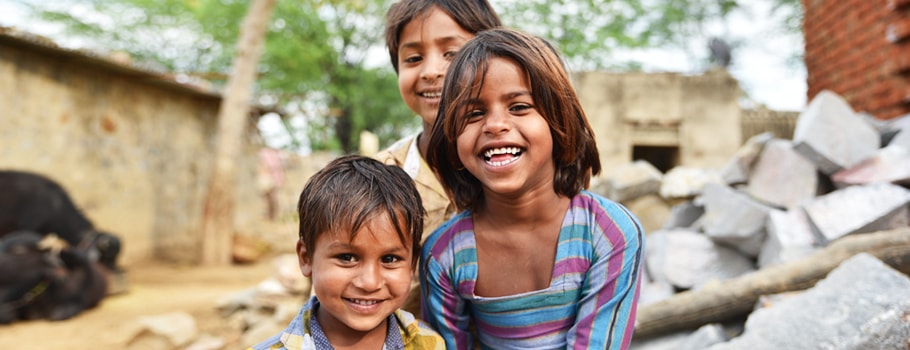
The initial production will take place in India, primarily due to the relatively high level of mold making operations and logistics despite the pandemic, and the presence of SATO’s established network of development and business partners.
From India, exports can reach many of the world’s most underserved populations, with the second manufacturing site likely to be in Africa.
LIXIL is also committing $1 million to help accelerate the rollout. LIXIL’s existing partnership with UNICEF will also expand activities in handwashing and sanitation in response to COVID-19. These activities range from collection of commercial and behavioral insights to strengthen behavior change, joint advocacy to promote hygiene programming and maximizing existing public and private sector networks and supply chains to expand access to handwashing.
Ishiyama knows just how critical it is that people around the world are both encouraged to wash their hands more frequently and are provided with the facilities to do just that.
“Even when the current coronavirus pandemic ends, we have to be ready for the next one,” he said. “Something like this may not happen for another 100 years, but it could happen a lot sooner. We have to reach out to as many people as possible – to promote hand hygiene practices and equip them with hand washing facilities so they can wash their hands regularly.”
Our Stories
- Backing People and Passions to Drive Innovation
- How Toilets in Schools are Catalyzing Change in Communities
- Building the Future by Recycling the Past
- Reinventing Consumer Connections in the World's Largest E-commerce Market
- Tackling Household Water Inefficiency in a Water-Stressed World
- Plugging the Plumber Shortage
- Pioneering Solutions to a Sewage Crisis in Rural Alabama
- Meet the Citizen Developers Changing How We Work
- Design and Brand Identity Transformation at LIXIL
- Three Changes to Prepare Europe’s Sanitary Industry for Growth
- Three Steps to Creating an Inclusive Culture
- From Linear to Circular: Giving Products in Your Home a New Lease of Life
- Crafting Unique Experiences as well as Products
- GROHE X: A Digital Brand Experience
- Design-led Innovation Delivering True Value
- Responsible Use of Plastics
- Empowering our People for an Agile Future
- Turning the Waves of Change into Opportunities
- SATO Tap: a New Handwashing Solution for All
- New Ways of Working Take Flight at LIXIL
- INAX: Rituals of Water
- Refreshing our sanitation targets, standing firm on our commitments
- Developing Attractive and Differentiated Products
- Conserving Water: The New Normal
- Insulating For a Warmer and Healthier Home
- Open Kitchen, Open Communication
- Tackling Open Defecation in India
- Shaping the Future of Faucets, One 3D Layer at a Time
- Bathed in Culture and Tradition
- Remodeling the Housing Market
- LIXIL's AQUA CERAMIC makes bathroom stains a thing of the past
- The Technology of Water
- Tackling Challenges in Global Sanitation and Hygiene
